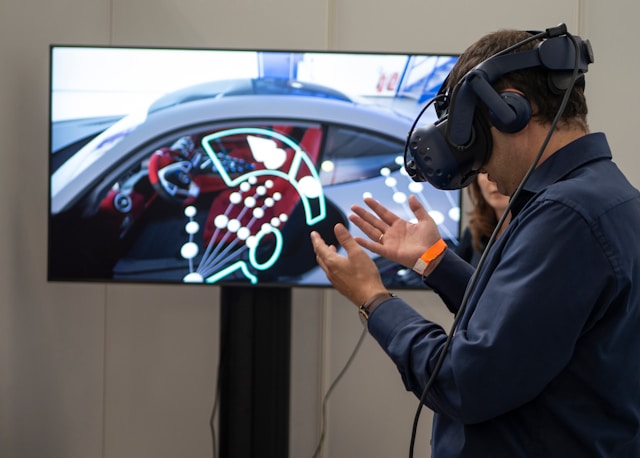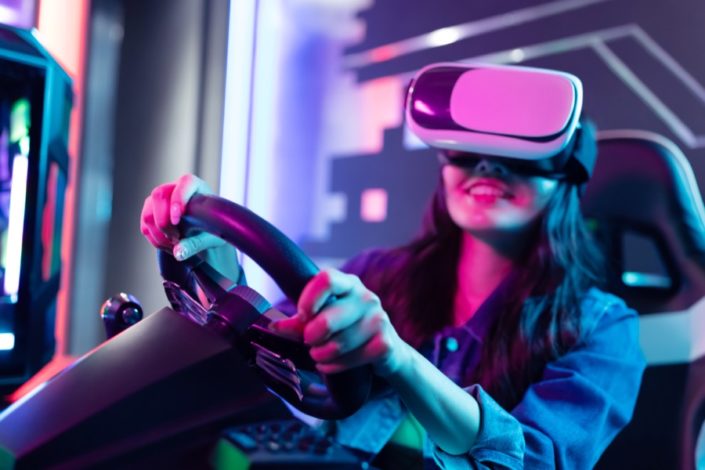Immersive Information Systems (BA)

Immersive technologies blend the physical world with digital reality to create unique experiences. Among these technologies, Augmented Reality (AR) and Virtual Reality (VR) stand out as primary forms that share many common characteristics. AR integrates computer-generated information into the user’s real-world surroundings, while VR employs computer-generated content to construct a fully immersive virtual environment.
In contemporary society and workplaces, these immersive technologies have evolved into everyday tools. Notably, the gaming industry has witnessed substantial investments in immersive technologies, with numerous companies developing VR games. In healthcare, surgeons use AR headsets to visualize surgical procedures and access patient health information during operations. Education employs AR and VR for visualizing interactive content in lectures. Furthermore, companies adopt VR for employee training, fostering creativity in product design, and facilitating collaboration among team members situated in different locations. In marketing, VR allows consumers to virtually interact with products, eliminating the need for physical presence.
This lecture delves into the profound impact of immersive technologies on shaping the future of both society and the workplace. It explores the current and future opportunities and challenges associated with these technologies, teaches fundamental concepts and design principles, explains their applications, and provides insights into the current state of research. Additionally, the lecture equips participants with essential knowledge to create their own immersive information systems.
Project

The course is complemented with a practical project where students, working in teams, choose and apply design methods as well as techniques to develop a prototype for an immersive information system. To facilitate this, students will learn fundamental skills in developing immersive applications using Unity. Within this project, students can effectively apply the knowledge and skills acquired during the lectures and throughout their studies in a challenging context.
Learning Objectives and Skills
Students will acquire an understanding of the foundational design principles of immersive information systems and can analyze and discuss such systems. Students will also learn state-of-the-art methods, techniques, and tools for successfully conducting VR projects, with the ability to choose and apply them appropriately. The course fosters the development of creativity as well as prototyping skills and enhances collaboration and presentation abilities.
Prerequisites
It is crucial that participants are highly motivated for collaboration in a group project. Furthermore, having fundamental programming skills would be beneficial to facilitate the practical implementation of a prototype in Unity as part of the project. However, the module does provide a step-by-step tutorial for Unity.
Lecturers
Guest lecturers in summer semester 2024:
Theo Papadopoulos – Head of Siemens Industrial Metaverse Lab
Course details
Lecture + Open Lab Sessions, 4 SWS
ECTS
Credits: 5
Form of examination
60-Minute written exam (60%) and project presentation (40%)
Registration
11.03.2024 – 07.04.2024 via StudOn
Dates and Room
Tuesday, 15:00 – 16:30, LG 4.156
Module compatibility
Bachelor Information Systems: Module in the section Information Systems – Architectures & Development (Elective)
Bachelor Information Systems: Module in the section Information Systems – Extension Courses (Elective)
Additional information
More details on course updates, materials, technical requirements, and other information will be announced in StudOn.
Keywords: Immersive Information Systems, Virtual Reality, Human Computer Interaction, User Experience, User Interface, Unity